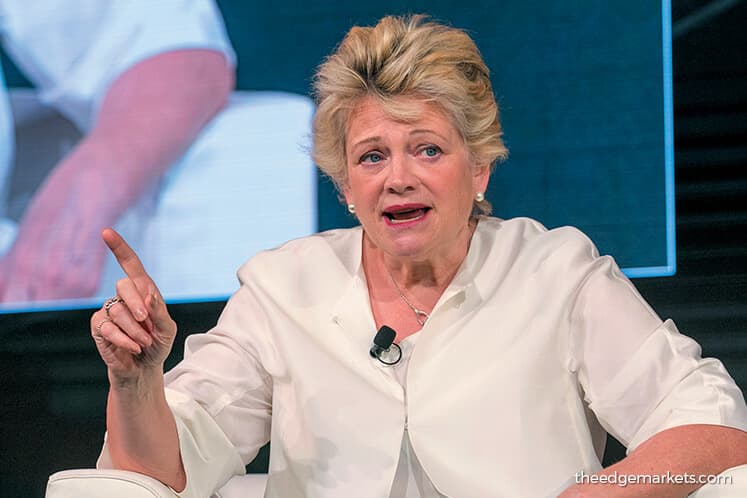
This article first appeared in The Edge Malaysia Weekly on June 26, 2017 - July 2, 2017
IN the face of a rapidly changing world, where uncertainties rule and disruptions are the norm, Tamara Erickson, adjunct professor of organisational behaviour at the London Business School, opines that organisational leaders will be either iconic because of their ability to get people to think or exert, or failures if they cannot.
“I like to call it ‘mobilising intelligence’. This idea of getting people to think is probably our most important challenge as leaders today. Thinking is an activity you can’t standardise and you can’t force me to do something or tell me how to do it. Frankly, you won’t even know if I’m doing it or not,” she explains.
This is what the knowledge economy is all about, she says, adding that it is about bringing in innovation, intelligence, collaboration, engagement and passion to make an organisation stand out.
“Your job as a leader has changed [from the early industrialists]. It’s no longer about requiring somebody to do something or monitoring them to see whether they’ve done it. It’s about figuring out a way to get them to want to do it. You’ve got to get me to want to think and to really want to dig deep and come up with [something],” she tells entrepreneurs in her discussion on “Future-proofing your workforce” at the WEOY 2017 forum in Monte Carlo.
Organisational leaders, Erickson says, should also ask themselves who are the core people they must have around every day to do or coordinate what needs to be done.
This, she explains, is because technology is enabling communication channels to open and is lowering the cost of business coordination, which will allow organisations to operate with fewer in-house resources, including people. It is also allowing them to work with more freelancers or what she refers to as a “community” of talents on a project-by-project basis. “Call it Uberisation, if you will,” says Erickson, “but that is the future organisations can expect. Physically, companies will also own less and rent more.”
In that sense, instead of lamenting about job-hopping workers, especially millennials, organisations should look at building that pool of community talents they can tap on a need-to basis.
On millennials, Erickson says organisations need to understand that they are not going to conform to the pay-your-dues-first model or believe in staying in one job for life. “They hear about violence, terrorism and many such random events growing up. That’s the word I want to emphasise — random. If your mental model was [built on the basis that] something random might happen tomorrow, think about how you’d live your life. Most people’s answer is, ‘I’d live it fully today’ [or] ‘I want to make sure today is as great as it can be’.”
So, if organisations want millennials, they have to think about how to make every day interesting and challenging for this generation, says Erickson. In return, they will get people who do things in radically different and more creative ways.
Besides money, she says the single biggest thing organisations can offer is a commercially valuable credential or “badge” that workers can earn to show a skillset that has been developed and has commercial value outside the organisation.
“I know organisations don’t want to train people for others but tough, get over it. That’s the way the world is going to be. If you offer enough ‘badges’, I may stay to earn them. If not, I’ll get that one ‘badge’ and go elsewhere to learn [earn] another,” she adds.
To this new generation of workers, security is not about working at that one company for life or having a house with some investments for retirement. “To the average 20-year-old today, security comes through having multiple skills and contacts. So, our definition of security is going to have to change.”
Regarded as a thought leader on generations in the workplace and a widely respected authority on leadership and the changing workforce, Erickson has been named four times as one of the 50 most influential living management thinkers in the world by Thinkers50, a ranking of global business thinkers.
The Edge is the media partner for EY Entrepreneur Of The Year Malaysia 2017
Save by subscribing to us for your print and/or digital copy.
P/S: The Edge is also available on Apple's AppStore and Androids' Google Play.